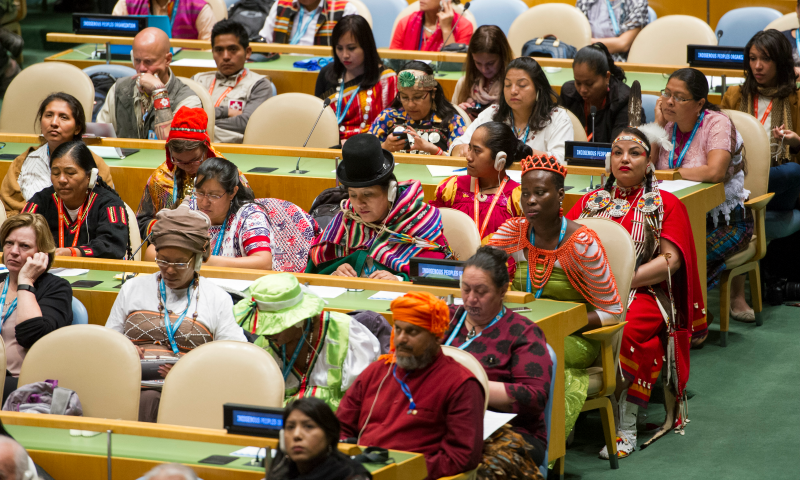
Every year on 9 August, the international community comes together to celebrate the International Day of the World’s Indigenous Peoples, paying tribute to indigenous communities around the globe. Living across 90 countries, indigenous peoples make up less than five per cent of the world’s population, represent some 5,000 different cultures and speak a majority of the world’s estimated 7,000 languages. The annual celebration dates back to December 1994 when the UN General Assembly decided to hold yearly observances.
This year’s commemoration will be dedicated to the Tenth Anniversary of the adoption of the United Nations Declaration on the Rights of Indigenous Peoples (the Declaration) and will take place on Wednesday, 9 August at UN Headquarters in New York.
The Declaration itself was adopted on 13 September 2007 by the General Assembly and it represented a culmination of tireless efforts by indigenous peoples and States, among others, to design an international human rights instrument that recognized both the individual and the collective rights of indigenous peoples.
From then on, the Declaration has become a major milestone to ensure the respect of indigenous peoples’ rights around the world. It has also provided guidance to States and other stakeholders on how to effectively respect and promote those rights. For indigenous peoples, the Declaration has made it clear that they are in fact right holders and can assert each of the provisions outlined in the Declaration, according to already existing human rights standards.
Despite major progress in implementing the Declaration over the last decade at the international, regional and local levels, and the creation of the United Nations Permanent Forum on Indigenous Issues (UNPFII), the Special Rapporteur on the Rights of Indigenous Peoples and the Expert Mechanism on the Rights of Indigenous Peoples, reports that there is a continuing gap between formal recognition of indigenous peoples and implementation of policies on the ground.
Further political will, along with technical capacity and financial commitment, are all necessary to realize the Declaration. In the same way, the UN System, through the System-Wide Action Plan on the Rights of Indigenous Peoples, needs to enhance coordination among UN entities to ensure a coherent approach.
Below are some steps to continue advancing the recognition of the rights of indigenous peoples, considering that there is no ‘one-size fits all’ approach to applying the Declaration, and keeping in mind that a primary aspect of implementing it is to work together with indigenous peoples at the national, regional and local levels.
Steps to advance the rights of indigenous peoples
- Constitutional reforms that recognize the identity and rights of indigenous peoples.
- Revisit and develop new policies and strategies. Especially by governments, the private sector, UN agencies and intergovernmental organizations.
- Promote capacity building and partnerships with judicial systems, parliamentarians and national human rights institutions in order to set precedent in legislation and jurisprudence.
- Allow indigenous peoples to participate in all decision-making processes that affects them.
- Include indigenous peoples in National Development Plans, in particular indigenous women.
- Urge States to implement recommendations made by the UN specialized mechanisms on indigenous peoples (UNPFII, EMRIP and SR).
- Last but not least, urge the UN System and its agencies to enhance their coordination to advance the rights of indigenous peoples, working together under the System-Wide Action Plan.
The event on 9 August will take place from 3 to 6 pm EDT and it will broadcast live via UN Web TV. It will feature a high-level segment with interventions from UN officials and the Chairperson of the UN Permanent Forum on Indigenous Issues, as well as a panel discussion exploring the successes and challenges facing the implementation of the Declaration over the past decade. To follow the conversation via social media, use the hashtag #WeAreIndigenous.
For more information: International Day of the World’s Indigenous Peoples
Source: UNDESA Voice Newsletter
 Welcome to the United Nations
Welcome to the United Nations